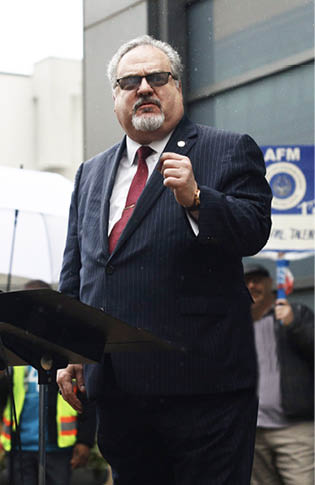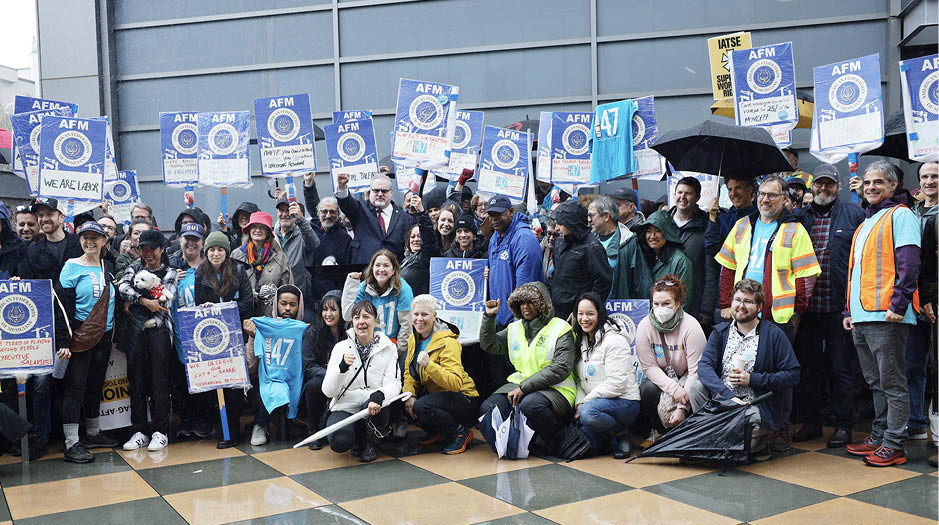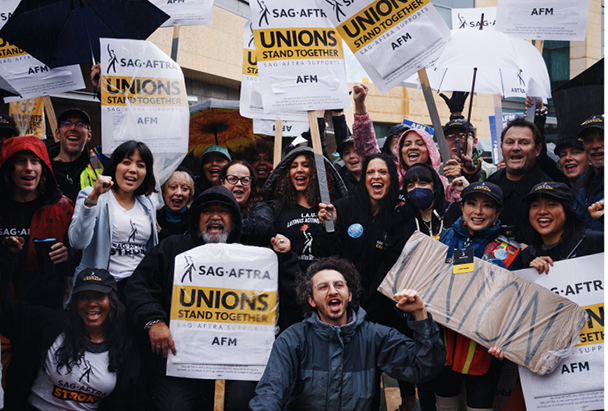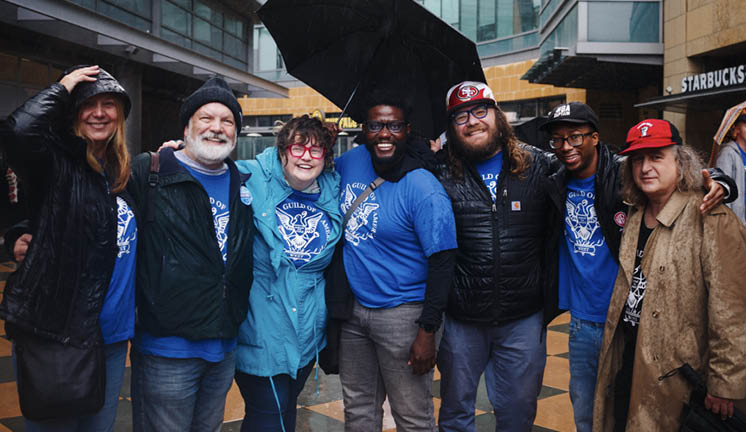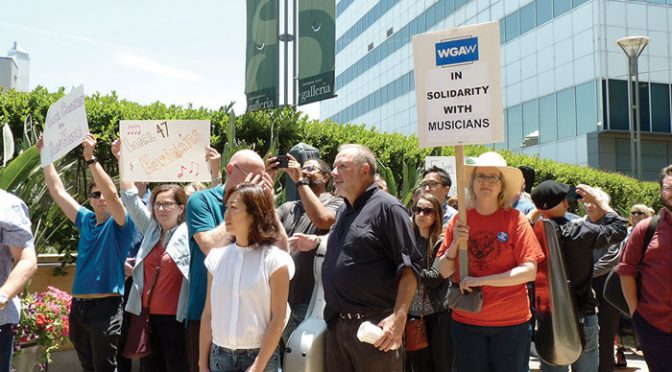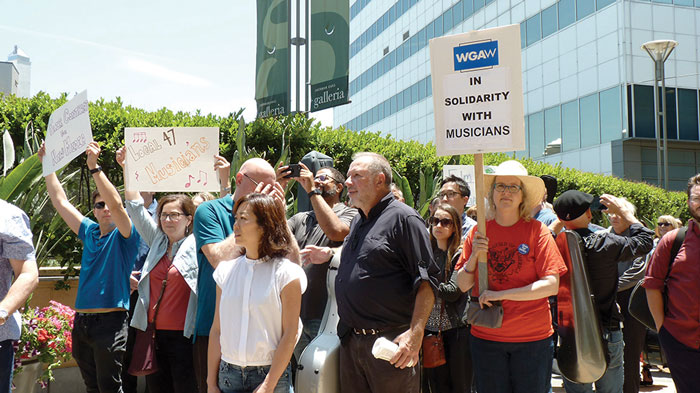A little rain couldn’t dampen the high spirits of close to 300 AFM members and supporters during a morning rally and press conference on January 22 in front of the Alliance of Motion Picture and Television Producers (AMPTP) headquarters in Sherman Oaks, California, on the first day of negotiations for the Motion Picture/TV Film contract.
The rally began with lively music performed by an AFM Local 47 (Los Angeles, CA) brass quintet. AFM International President Tino Gagliardi addressed the crowd: “Each union that has gone before us has bargained for economic advances in a form that works best for them and their members. We are going to do the same. This is not simply a matter of dollars and cents. It is a matter of respect, of recognizing the immense value that musicians bring to every project—and then compensating us accordingly. Musicians are no longer content to stand quietly. The labor community is united—our voices amplified by the solidarity of SAG-AFTRA, IATSE, the WGA, and the Teamsters.”
Musicians are demanding a fair contract that includes residual payments for made-for-streaming content, AI protection, increased industry wages, meaningful healthcare, and improved working conditions. “We’re fighting for a fair share for musicians, especially in streaming,” adds Gagliardi. “We have been effectively cut out of the market right now with the made-for-new-media product that’s being put out there. We need to be paid for streaming, which is a primary market, which means we need a residual. We need additional payment for work that is continuing to be exploited.”
The rally was punctuated by guest speakers: Stephanie O’Keefe, president of AFM Local 47; Yvonne Wheeler, president of Los Angeles County Federation of Labor; Michele Mulroney, vice president of Writers Guild of America West; Lindsay Dougherty, secretary-treasurer of Teamsters Local 399, director Motion Picture Division and vice president of Teamsters Western Region; Pamela Greenwalt, chief communications and marketing officer for SAG-AFTRA; and Marc Sazer, vice president of AFM Local 47. A common thread among all of the speakers was the importance of continued teamwork and unity displayed during the 2023 WGA and SAG-AFTRA strikes.
“Music is what gives our favorite movies and shows their soul, and these workers expect and deserve to be treated fairly and given the contract they’ve earned,” says Gagliardi. “We are going into these negotiations in good faith, and we hope the AMPTP is doing the same.”
